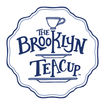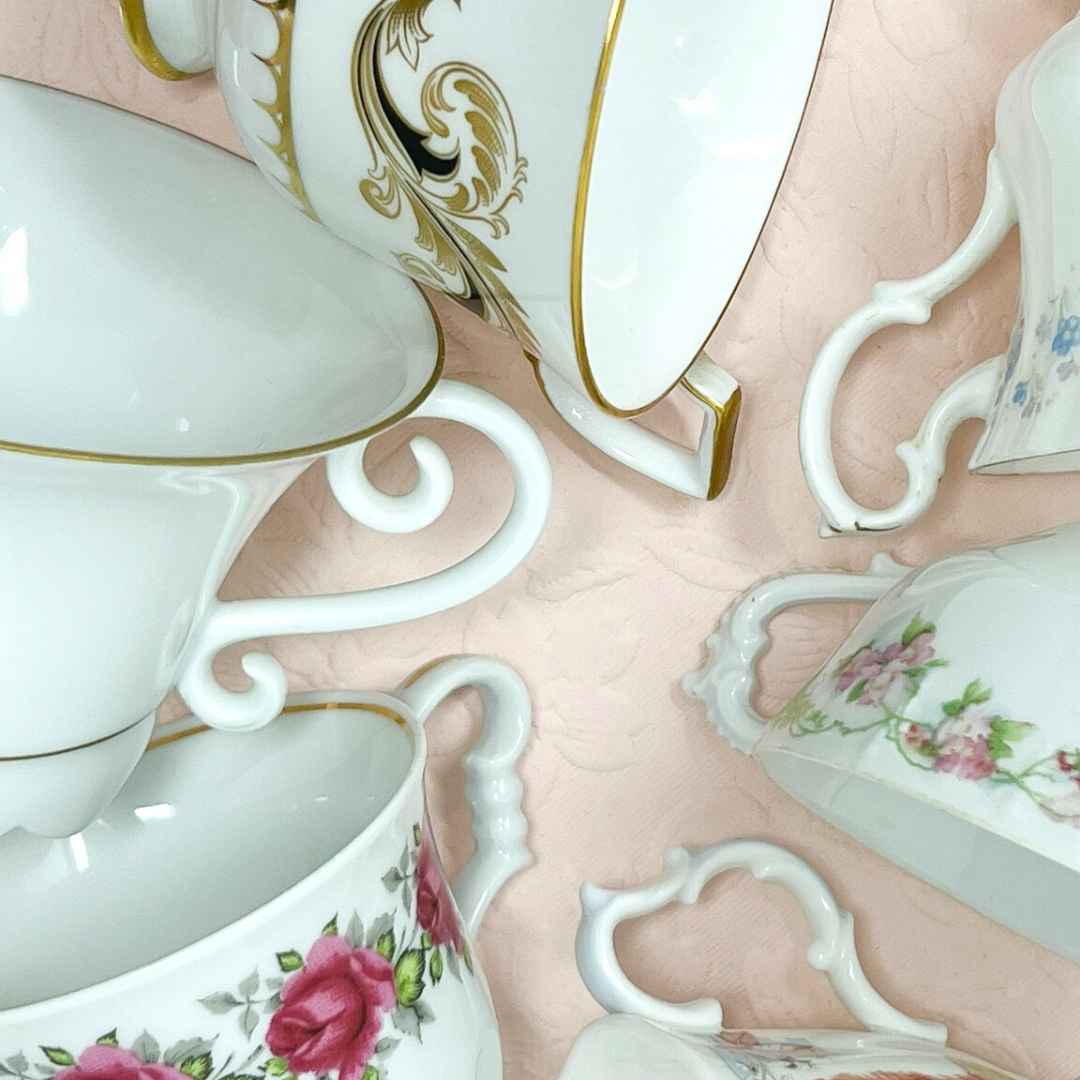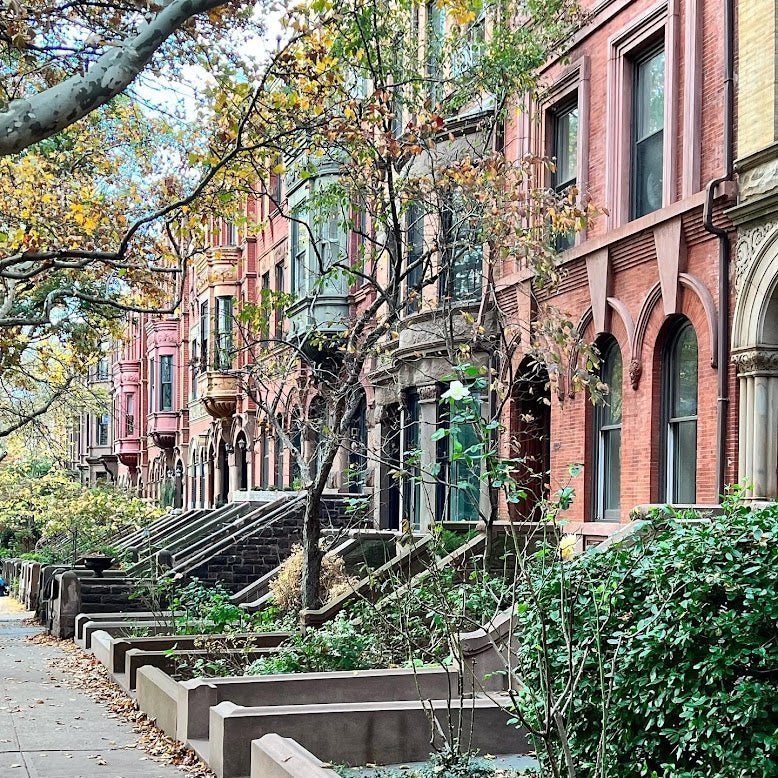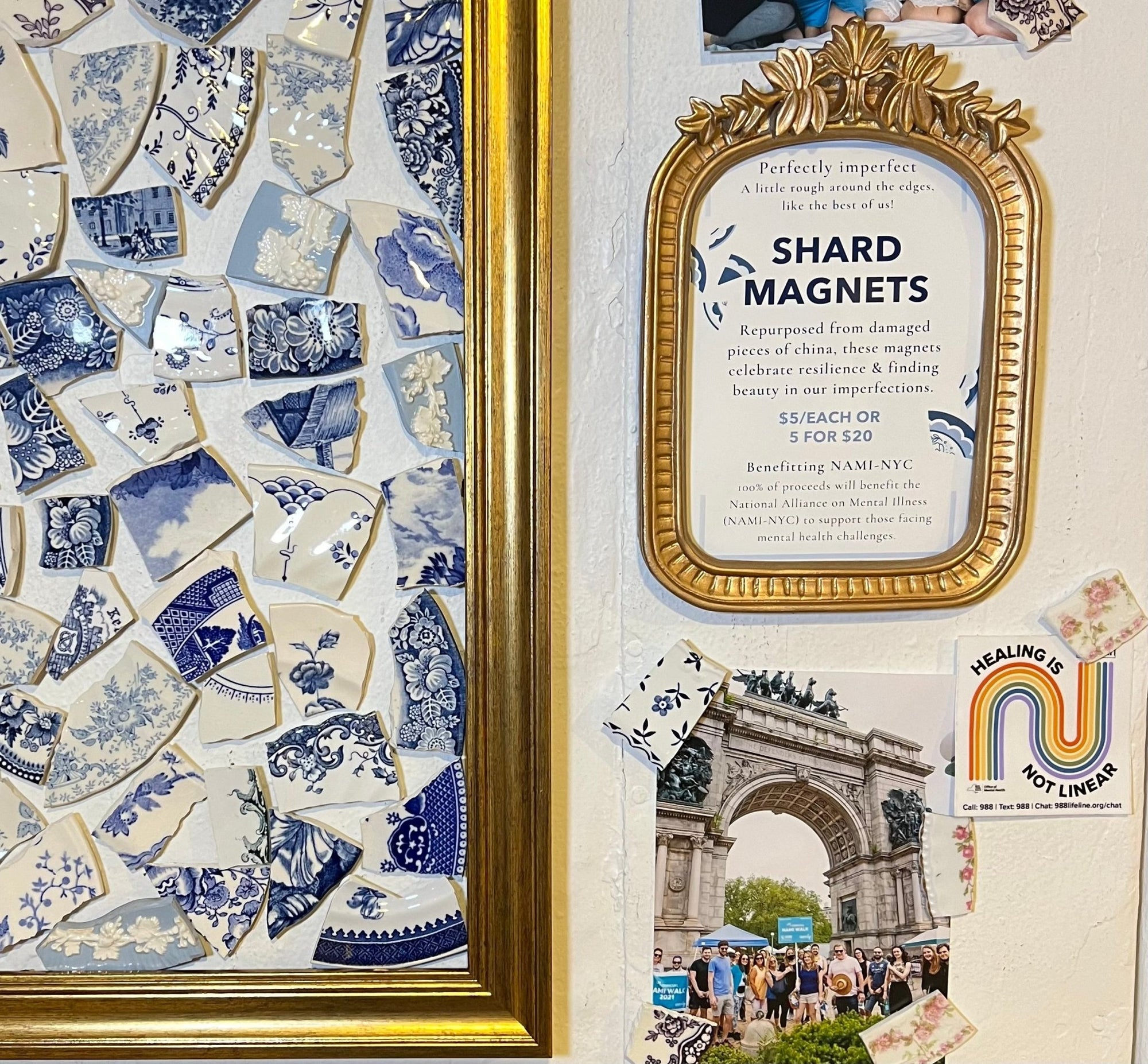Teacup handles, in addition to the shape of the tea cup’s body, can tell us a lot about the backstory of that piece of tea ware. Some cup shapes and handles are iconic and recognizable by collectors, providing insight into the era in which the cup was produced. In certain instances, the antique teacup’s attributes can also reveal the specific manufacturer that created it or the region of the world where it was produced.
The Elizabethan cup shape, for example, which features a footed pedestal, rounded bottom, and a flared rim, was created by the Paragon China Company in the early 1900s. Upon purchasing the company and acquiring the design in 1972, Royal Albert began producing Elizabethan-shaped teacups and saucer under their brand name. So, if the back stamp on the cup and saucer didn't read "Made in England," or had been somehow rubbed off, we still could have figured out this information.
Tea Cup Handle Shape:
Teacup handles can reveal how the teacup maker intended for it to be held. Most handles used in homes and restaurants for casual and fine dining are designed in a loop shape, to be held between the thumb and forefinger. This handle construction is widely considered to be the gold standard for shape, comfort and grip.
Interestingly, a lot of antique teacups do not have loop handle shapes, revealing that they were not intended for everyday use.

Pictured below are some of our all-time favorite teacup handle shapes that aren't the most practical (but we love them no less!): the STUMP, BUTTERFLY, WING and EAR-shape.

Tea Cup Shape & Body:
Cup shapes are another way to reveal how the vessel should held and what kinds of teas are intended to be served in it. Any serious tea-drinker will tell you that the type of teacup you use has a significant influence on the tea-drinking experience.
Ideally a teacup should be wider at the top, with an even angle to the bottom to allow the tea to cool correctly and be less likely to burn your tongue. While taller cups or mugs might allow you to appreciate the aroma of the tea better, it will likely not cool the your beverage as evenly.
In our own collection of vintage teacups for sale on our website, we noticed countless different teacup handle and body shapes. In trying to put a name to some of the popular ones, we were surprised to find that that there wasn't a singular authority on the precise names for the many variations in these petite works of art.
So, we did the best with the information we were able to find! Scroll to the bottom to see the resources we consulted, including Royal Albert China's Cup Shape Reference Page. If you are writing an academic paper on teacup handles and shapes you may want to double check with a tea historian (or just don’t report us to tea authorities, ok? 😂).
Below you’ll see a handful of the most common teacup shapes we’ve encountered along with several fun and outlandish shapes and handles that we just love looking at (and using in creative ways!).
Identifying Teacup Handles & Shapes

Pictured here from left to right: HAMPTON Shape with an Oval Ring Handle, GADROON shape cup with a square Handle and ELIZABETHAN shape cup shape with a "Loop with Kick" shape handle.

Pictured here from left to right: A GAINSBOROUGH shape Cup with a B-Shape/Broken Loop Handle, a HAMPTON Shape cup with a French Loop Handle, followed by an AVON shape cup with a broken loop handle.

Pictured here from left to right: A MONTROSE shape cup with a Broken Loop Handle, a COUNTESS shape cup with a French Loop Handle, followed by a MALVERN shape cup with a French loop handle.

Pictured here from left to right: A SHELLEY shape cup with a Loop Handle, a LYRIC shape cup with a broken loop handle, followed by a CHELSEA shape cup with an extended loop handle.

Are you ready to find your next favorite teacup and saucer? Browse Vintage & Antique Teacups to add an exquisite new set to your collection or find the perfect gift for your tea-loving friend.



